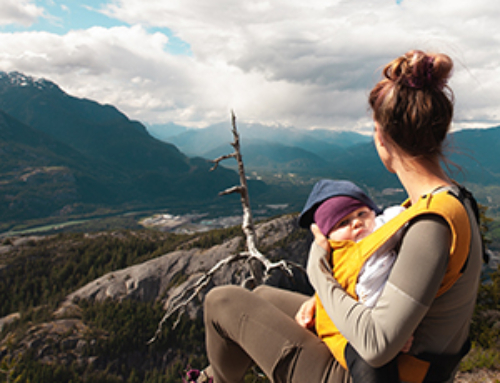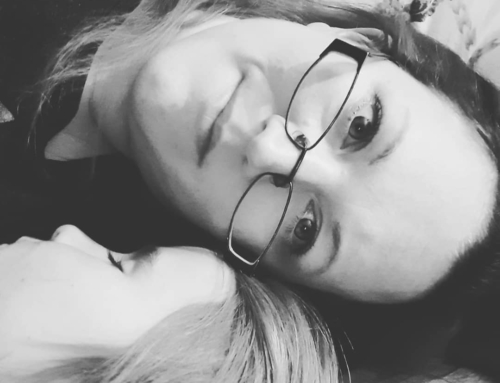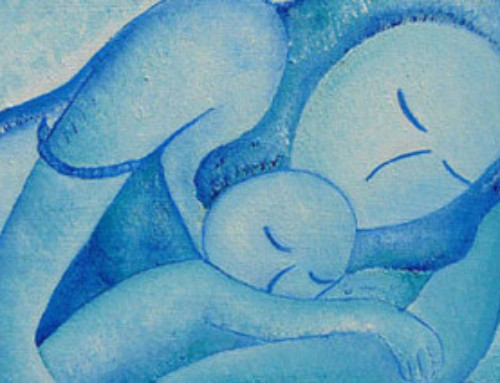By Tracy G. Cassels
 The other week my daughter and I went to her dance class. At the end, her and I were playing a game where she ran up like she was going to hug me, but then deked at the last minute, laughing while I feigned sadness. After about 4 or 5 times of this, another little girl came up and gave me a hug, an unbelievably sweet gesture. My daughter was PISSED. She immediately started crying and came up to me and was saying, “I want to hurt her. I want to hit that girl. I want to hurt her.” I know in many cases, people would immediately tell their child that they don’t want to hurt the child, that they are angry but violence isn’t the answer, and so on and so forth.
The other week my daughter and I went to her dance class. At the end, her and I were playing a game where she ran up like she was going to hug me, but then deked at the last minute, laughing while I feigned sadness. After about 4 or 5 times of this, another little girl came up and gave me a hug, an unbelievably sweet gesture. My daughter was PISSED. She immediately started crying and came up to me and was saying, “I want to hurt her. I want to hit that girl. I want to hurt her.” I know in many cases, people would immediately tell their child that they don’t want to hurt the child, that they are angry but violence isn’t the answer, and so on and so forth.
I did none of those things. I just held her and listened and told her I understood. Not once did she even try to approach the little girl. She didn’t try to hit her or hurt her, she was in my arms, crying, and simply telling me exactly how she felt. In the weeks since then, she has done the same thing – expressing anger and wanting to hurt someone while not attempting to do it all. And I continue to allow her to express it, saving our discussions of what happened and what people meant for after she has calmed down (because, yes, of course we discuss that too).
I’ll be honest though, it can be very uncomfortable for me. Part of me wants to do what so many parents do and tell her that those thoughts are wrong. It just sounds so weird to hear violent thoughts from my beautiful, sweet, loving 3-year-old. But then I realize they aren’t wrong. They just are. Acting on those thoughts, though developmentally normal for a 3-year-old, would be something to talk about, but just thinking it? No. In fact, I would be lying if I didn’t have thoughts like that myself.
The problem with the typical reactions to these types of thoughts, voiced by those little ones we love so much, is that they really reflect our own discomfort about these emotions in us. If you’ve been raised to quell those feelings, hearing anyone express them is going to make you feel awkward and wrong and uncomfortable. And so that’s exactly what we try and do – shut those violent thoughts up because the feelings we have when we hear them are too much. In fact often we do want to quell them in ourselves as well, worrying that they reflect some deep, dark side of us we don’t want to see or even acknowledge. So we suppress our feelings, but it doesn’t do us well. We live in a society where we see people eventually snap or blow up from repressed feelings, we see people suffer immense anxiety about what goes on in their heads, and people who believe they are horrible beings for just thinking things that, frankly, everyone thinks.
Is this what we want for our children?
I hope not and that means accepting their emotions, negative and all. But here’s the second problem that we tend to run into in this scenario: Our idealization of the “innocence” of children. Most likely the reason many of us were raised to think that these thoughts were bad and wrong was that our own parents had the same idealization that we were pure and innocent beings as children and we don’t allow pure and innocent people to feel anger or think violently. We refuse to ascribe adult thoughts to those who we see as being somehow “better” than us, and when we are presented with evidence that it may not quite be the case, we have to hide it.
For what does it say about humans if we believe that this type of anger and desire to harm is present in those who we feel are “perfect” or “pure”? We either have to accept that children aren’t “perfect” and “pure” based on our current definitions or we have to change our definitions. I frankly like the latter option. Perfection shouldn’t be the absence of any anger (or sexual thoughts, but that’s a topic for another day), it should be the understanding of it, it’s role in our life, learning from it, and learning how to cope with it appropriately. A young child has a lot to learn about all their emotions, including anger, but if we try to avoid talking about them, they can never develop their emotional intelligence to its fullest capacity.
How does a child learn about anger? Well, first they need to be able to identify it in themselves and that’s exactly what my daughter was doing and what many children start to do before told they are wrong. She was realizing her own feelings. If I tried to tell her she didn’t feel that way, I would be harming her ability to understand her own emotional state. While many of us are completely against the idea of telling young children “You’re okay” when they’re not, we don’t bat an eye at telling them they don’t feel violent. Yet it’s exactly the same and equally important that our children learn to understand their feelings of anger and, yes, violence. If they can’t learn to identify them, how on earth can we ever expect them to handle them appropriately? To not internalize them or externalize them inappropriately?
So I ask of you this: As hard as it may be to accept that the child you see as being perfect and loving and caring may have violent thoughts, accept it. Talk to them about it, but don’t negate them. Your child needs to be able to feel that they can talk about all of their emotions in order to learn how to cope with them appropriately. And if you really feel up to it, give yourself the same leeway too – you deserve it as well.






[…] thinking, I need to be present and accept that my child’s emotional intelligence thrives upon learning to identify and express emotion. If I want my child to be gentle, joyful, […]
[…] An interesting perspective and one I can resonate with: https://gku.flm.mybluehost.me/evolutionaryparenting.com/the-child-and-the-angry-thoughts/ […]
[…] Source […]
Hi,
Your article is very interesting and insightful. I agree with what you are saying and I strive to allow my children to feel their feelings and not rush in telling them not to feel this way. My question is when the parents are separated and have very different views on how best to deal with this how do you handle this with your child without causing confusion. I have a 3yr old and 1yr old and especially struggle with how to help 3year old handle her emotions and I worry how her father deals with this.
Any advice appreciated.x
A wonderful question that I wish I had a better answer to, but the first is to talk to the spouse to see if an agreement can be reached about how to address this. If not, you do the best you can when your child is with you. Make sure your child feels comfortable talking to you so that if something comes up at your ex’s house, your child is secure in bringing it up with you and having a safe space to process and experience. It’s the best you can offer your child during this time.